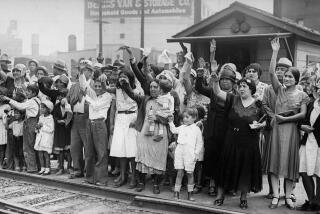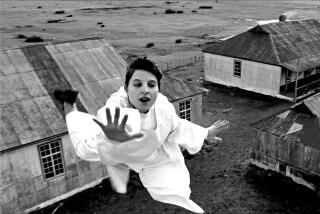A Holiday for Exiles in Chile
- Share via
When I was allowed back to Chile in 1983 after 10 years of forced exile, I was told by the government of Gen. Augusto Pinochet that my banishment was over forever. Although wary of any promise by a dictator as ferocious and conniving as this one, we nevertheless organized our family life as if we could, in fact, really settle down in our own land. Slowly and tentatively, we initiated our return, living half the time in Chile and the other half in the States. Four years later, however, when I arrived with my two sons at the Santiago airport, I was arrested with the younger boy and deported for political reasons.
Although that banishment was short-lived and we were able to return two weeks later, the incident confirmed something I had always known but preferred not to admit, perhaps because it would have made life too precarious: In a dictatorship, no measure of liberalization is irreversible until the tyrant himself has been thrown out.
Recent events in Chile have not made me any less skeptical. I was in Santiago last month when Pinochet announced the lifting of the state of emergency that had served as the legal instrument with which he had been able to arbitrarily exile citizens for the last 15 years. I saw the measure as most people in Chile saw it: a temporary abrogation, designed to persuade the voters, who must decide on Oct. 5 whether to say yes or no to eight more years of his rule, that the general had quite suddenly suffered a miraculous conversion and become democratic. True, we were overjoyed at the return of those exiles able to afford a quick ticket home. And we raucously celebrated the fact that the government, in principle, could no longer operate outside the law; dissidents could not be sent into internal exile, publications could not be banned nor public rallies forbidden.
Still, our celebrations were dampened by the certainty that the regime had not given up all of its power to repress. Twenty-nine opposition journalists are under indictment by military courts. Prominent opposition leaders like Clodomiro Almeyda and Oscar Guillermo Garreton are in jail. I spoke to a young woman who that very week had been kidnaped, beaten and raped by secret policemen whose identify she knew; a swastika had been cut into her breast. On the night of Pinochet’s proclamation, roaming death squads shot and killed three protesters and wounded hundreds more. Opposition marches are still routinely broken up by the police, who try to provoke the peaceful demonstrators into acts of violence, which are then shown on television without any chance of viewers discovering who started the confrontation.
Gen. Pinochet’s temporary and cosmetic liberalization is born out of his need to be nationally and internationally legitimized as Chile’s ruler in an election considered fair and clean. This is an absurd pretension. One month of restored freedoms does not blot out 15 years of incessant terror. There is no equality of opportunities between the leaders of the opposition--with their scant resources, their innumerable intimidated supporters, their memories of constant harassment--and a government that still despotically controls the police, the television stations, the streets, the many levers of the economy, the subsidies for housing and nutrition and jobs and schools.
And yet, for all our misgivings, this opening is an extremely hopeful sign. It is possible that Pinochet has persuaded some voters that he has changed his spots. But the major effect is to diminish the fear that was the source and sustenance of his power for so long. Even before these pseudo-benevolent measures were announced, most of the public-opinion polls showed the Vote No campaign winning the plebiscite handily. Even so, what worries us most, of course, is what will happen after Oct. 5. Several army commanders and Gen. Pinochet himself have threatened the citizenry, if we dare to vote no, with a repetition of the same repression of 1973, when they overthrew the constitutional government. What is to stop him from reversing his present liberalization because the Fatherland is in danger?
Pressure from the international community may well prove decisive if the military government tries to commit fraud the day of the plebiscite or to deny the triumph of the opposition that very night. A pariah, almost a global leper, Pinochet craves foreign recognition. People and governments abroad who care about the future of democracy and stability in my land should remain watchful. But vigilance from outside Chile will be effective only if inside the country our citizens are ready to stand up for their rights when, once again, as must inevitably happen as soon as the dictator feels threatened, he tries to take back what he so ungraciously and clumsily conceded for electoral reasons.
The general, naturally, insists that if he is not elected, the result will be chaos, death and disintegration.
But I am hoping that the people of Chile realize what I understood that day when I was expelled from my country for a second time after having been promised that my personal exile was over: There can be no return of us all from that collective state of exile and separation until the man who has ravaged our rights is definitively defeated.
Or, to put it more bluntly to every foreign reader: Would you trust someone like Gen. Pinochet with the fate of your family and your country?
More to Read
Sign up for Essential California
The most important California stories and recommendations in your inbox every morning.
You may occasionally receive promotional content from the Los Angeles Times.









